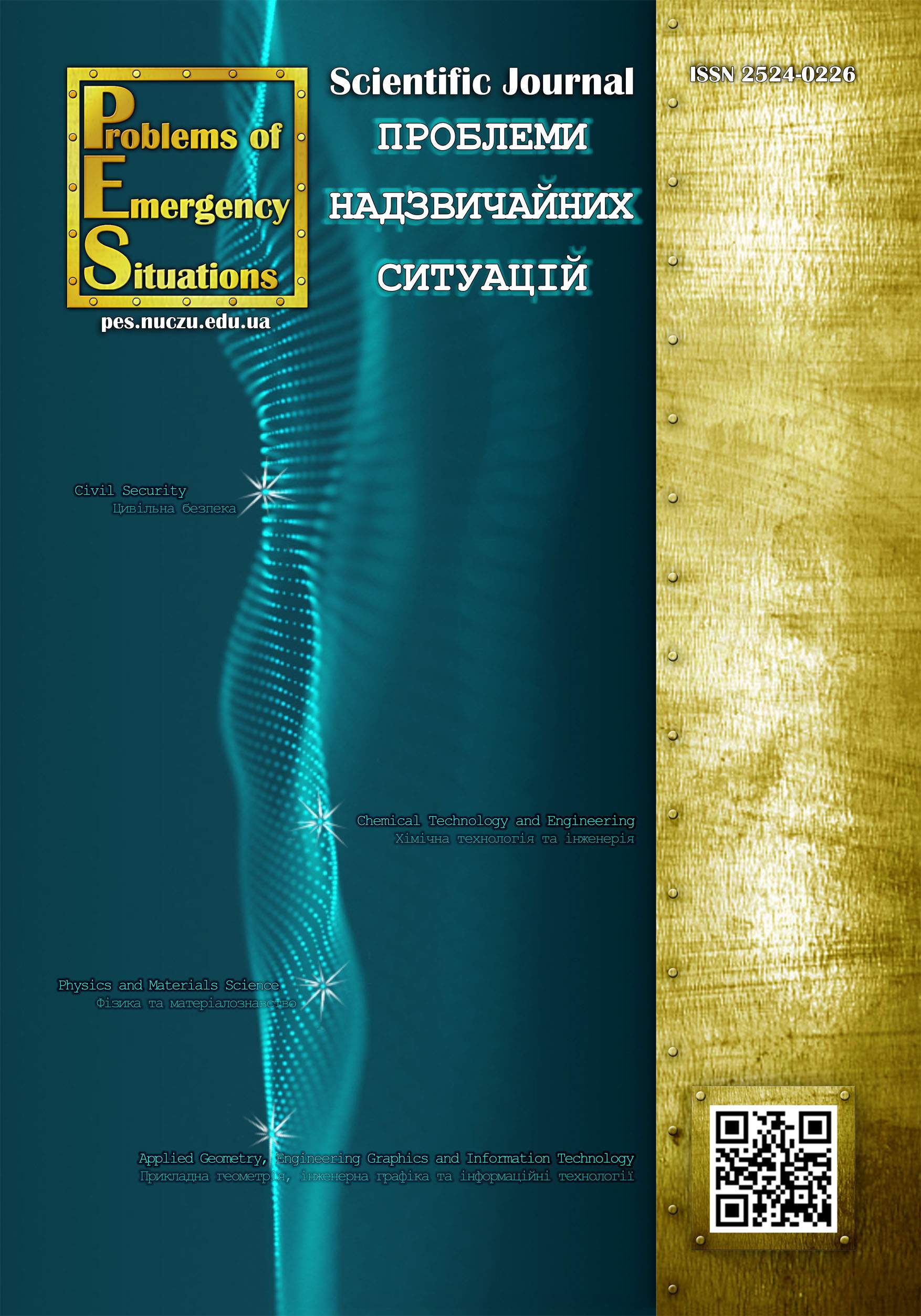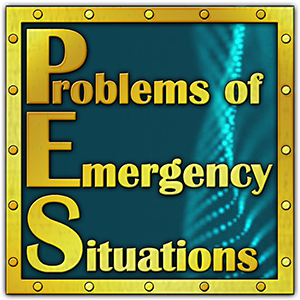- In order to comply with the ethical standards adopted by the international scientific community and to prevent any violations of these norms, both in their own work and in relations with all participants in the scientific process the article is subject to a mandatory review procedure
- Scientific articles submitted to the editorial board and meeting the formal criteria are considered on the subject compliance with the subject matter of the publication and the definition of the range of reviewers. Reviewing materials that are relevant to the subject matter of the publication is completely anonymous for the author and reviewer, the procedure is carried out by two independent reviewers (the process of double "blind" review - Double-blind peer review policy).
- The review team may include members of the editorial board and external experts who determine the vector of development of scientific thought and have publications in the relevant subject areas.
- The reviewer evaluates:
- sufficiency of disclosure of the relevance of the article;
- substantiation of the connection of the problem posed in the article with important scientific or practical tasks;
- completeness of analysis of recent research and publications on a general problem;
- the purpose of the article corresponds to the problem considered by the author;
- substantiation of the received scientific results;
- scientific conclusions and their correspondence to the purpose of the article;
- prospects for further research in this direction;
- аnd also the reviewer evaluates the terminology of the uniqueness of the article;
- knowledge of the author of scientific literature on the subject of the discussion, including international experience;
- peculiarities of the author's style and language (clarity of language and style, necessity of additional scientific and literary editing, etc.).
- The review should contain specific conclusions about the expediency of the publication, indicating the main shortcomings of the article (if any), as well as the conclusion about the possibility of publication: «recommended», «recommended in the light of the correction of these shortcomings»or «not recommended».
- The review is made in print, must be signed by the reviewer and certified by the seal of the institution at the place of work of the reviewer.
- In case of rejection of the article, the editorial board sends the author a motivated refusal.
- The presence of a positive review is not sufficient reason for the publication of the article. The final decision on the expediency of publication is taken by the editorial board of the publication.
Unicheck plagiarism check system is applied to articles.
The procedure for reviewing and adhering to editorial ethics is organized in accordance with the principles declared by the Committee on Publication Ethics (Committee on Publication Ethics / COPE)
Adherence to academic integrity
The edition of the publication contributes to the observance of academic integrity and requires the following requirements in the preparation of a scientific article:
- references to sources of information in the case of the use of ideas, developments, statements, information;
- observance of the norms of the legislation on copyright and related rights;
providing reliable information about the methodology and results of research, the source of the information used and its own pedagogical (scientific and pedagogical, creative) activity.
Ethical Obligations of Authors
Main duty of an author is to present an accurate account of the research performed as well as an objective discussion of its significance.
An author should be aware that journal space is a limited resource and should use it wisely and economically.
A primary research report should contain sufficient detail and reference to public sources of information to permit the author’s peers to repeat the work. When requested, the authors should make a reasonable effort to provide samples of unusual materials unavailable elsewhere, with appropriate material transfer agreements to restrict the field of use of the materials so as to protect the legitimate interests of the authors.
An author should cite those publications that have been influential in determining the nature of the reported work and that will guide the reader quickly to the earlier work that is essential for understanding the present investigation. Except in a review, citation of work that will not be referred to in the reported research should be minimized. An author is obligated to perform a literature search to find, and then cite, the original publications that describe closely related work. For critical materials used in the work, proper citation to sources should also be made when these were supplied by a non author.
Any unusual hazards appearing during an investigation should be clearly identified in a manuscript reporting the work.
Fragmentation of research reports should be avoided. A scientist who has done extensive work on a system or group of related systems should organize publication so that each report gives a well-rounded account of a particular aspect of the general study.
In submitting a manuscript for publication, an author should inform the editor of related manuscripts that the author has under editorial consideration or in press. Copies of those manuscripts should be supplied to the editor, and the relationships of such manuscripts to the one submitted should be indicated.
It is improper for an author to submit manuscripts describing essentially the same research to more than one journal of primary publication, unless it is a resubmission of a manuscript rejected for or withdrawn from publication. It is generally permissible to submit a manuscript for a full paper expanding on a previously published brief preliminary account (a “communication” or “letter”) of the same work. However, at the time of submission, the editor should be made aware of the earlier communication, and the preliminary communication should be cited in the manuscript.
An author should identify the source of all information quoted or offered, except that which is common knowledge. Information obtained privately, as in conversation, correspondence, or discussion with third parties, should not be used or reported in the author’s work without explicit permission from the investigator with whom the information originated. Information obtained in the course of confidential services, such as refereeing manuscripts or grant applications, should be treated similarly.
An experimental or theoretical study may sometimes justify criticism, even severe criticism, of the work of another scientist. When appropriate, such criticism may be offered in published papers. However, in no case is personal criticism considered to be appropriate.
The co-authors of a paper should be all those persons who have made significant scientific contributions to the work reported and who share responsibility and accountability for the results. Other contributions should be indicated in a footnote or an “Acknowledgments” section. An administrative relationship to the investigation does not of itself qualify a person for co-authorship (but occasionally it may be appropriate to acknowledge major administrative assistance). Deceased persons who meet the criterion for inclusion as co-authors should be so included, with a footnote reporting date of death. No fictitious name should be listed as an author or coauthor. The author who submits a manuscript for publication accepts the responsibility of having included as co-authors all persons appropriate and none inappropriate. The submitting author should have sent each living co-author a draft copy of the manuscript and have obtained the co-author’s assent to co-authorship of it.
The authors should reveal to the editor and to the readers of the journal any potential and/or relevant competing financial or other interest that might be affected by publication of the results contained in the authors’ manuscript. All authors should not have any personal significant financial interest and employment or other relationship with entities that have a financial or other interest which can affect the results described by the manuscript.
Ethical Obligations of Reviewers of Manuscripts
As the reviewing of manuscripts is an essential step in the publication process, and therefore in the operation of the scientific method, every scientist has an obligation to do a fair share of reviewing.
A chosen reviewer who feels inadequately qualified to judge the research reported in a manuscript should return it promptly to the editor.
A reviewer of a manuscript should judge objectively the quality of the manuscript, of its experimental and theoretical work, of its interpretations and its exposition, with due regard to the maintenance of high scientific and literary standards. A reviewer should respect the intellectual independence of the authors.
A reviewer should be sensitive to the appearance of a conflict of interest when the manuscript under review is closely related to the reviewer’s work in progress or published. If in doubt, the reviewer should return the manuscript promptly without review, advising the editor of the conflict of interest.
A reviewer should not evaluate a manuscript authored or co-authored by a person with whom the reviewer has a personal or professional connection if the relationship would bias judgment of the manuscript.
A reviewer should treat a manuscript sent for review as a confidential document. It should neither be shown to nor discussed with others except, in special cases, to persons from whom specific advice may be sought; in that event, the identities of those consulted should be disclosed to the editor.
Reviewers should explain and support their judgments adequately so that editors and authors may understand the basis of their comments. Any statement that an observation, derivation, or argument had been previously reported should be accompanied by the relevant citation. Unsupported assertions by reviewers (or by authors in rebuttal) are of little value and should be avoided.
A reviewer should be alert to failure of authors to cite relevant work by other scientists, bearing in mind that complaints that the reviewer’s own research was insufficiently cited may seem self-serving. A reviewer should call to the editor’s attention any substantial similarity between the manuscript under consideration and any published paper or any manuscript submitted concurrently to another journal.
A reviewer should act promptly, submitting a report in a timely manner.
Reviewers should not use or disclose unpublished information, arguments, or interpretations contained in a manuscript under consideration, except with the consent of the author. If this information indicates that some of the reviewer’s work is unlikely to be profitable, the reviewer, however, could ethically discontinue the work.














